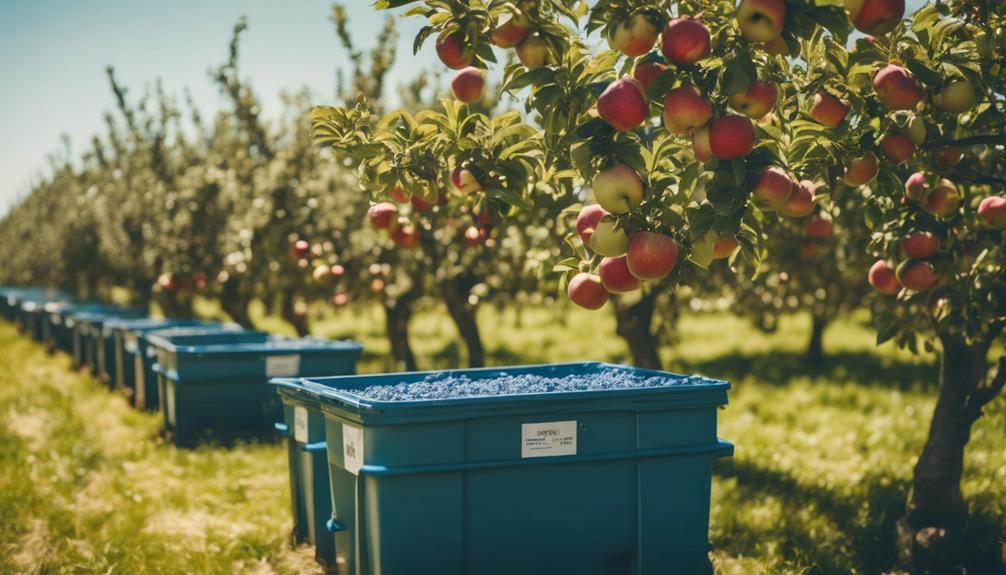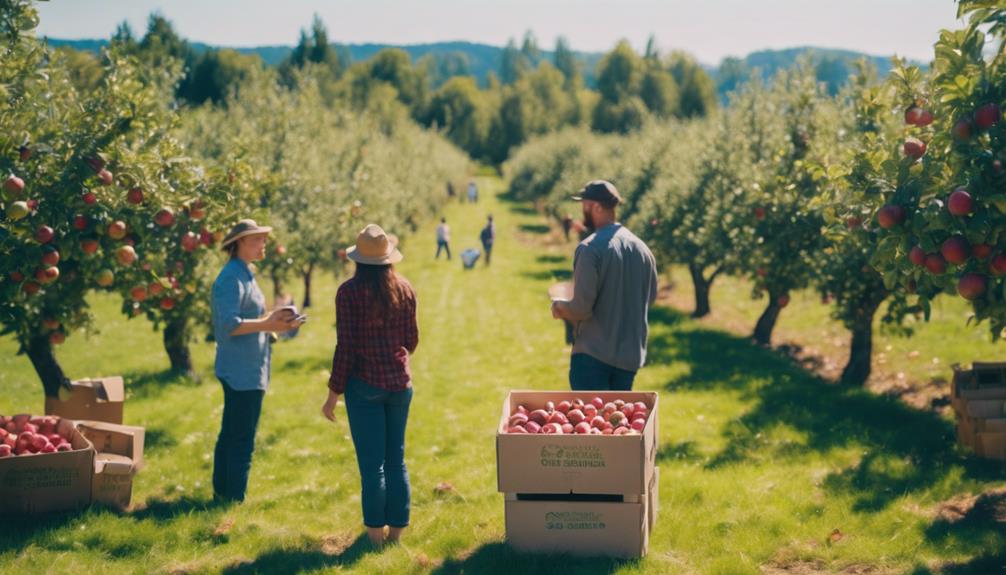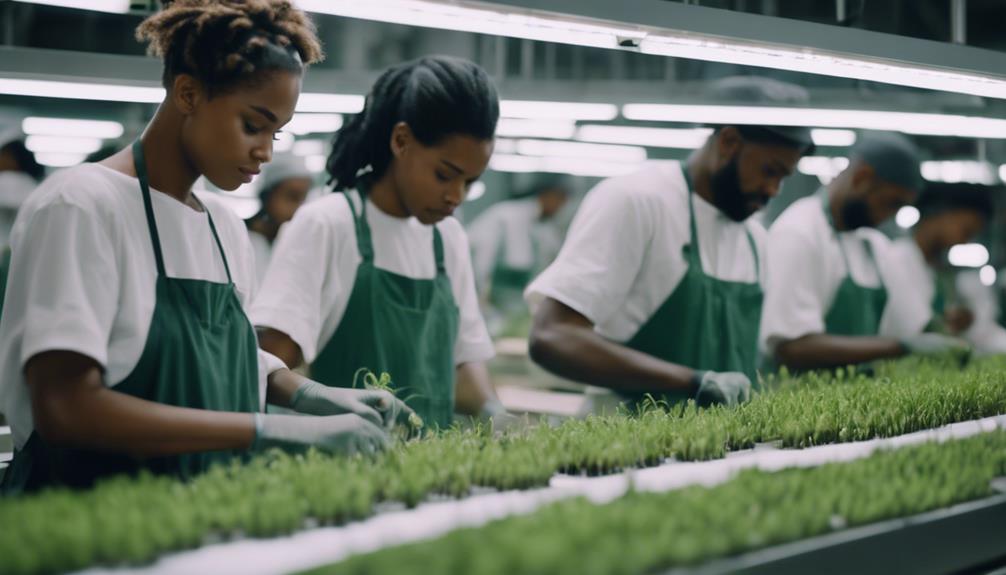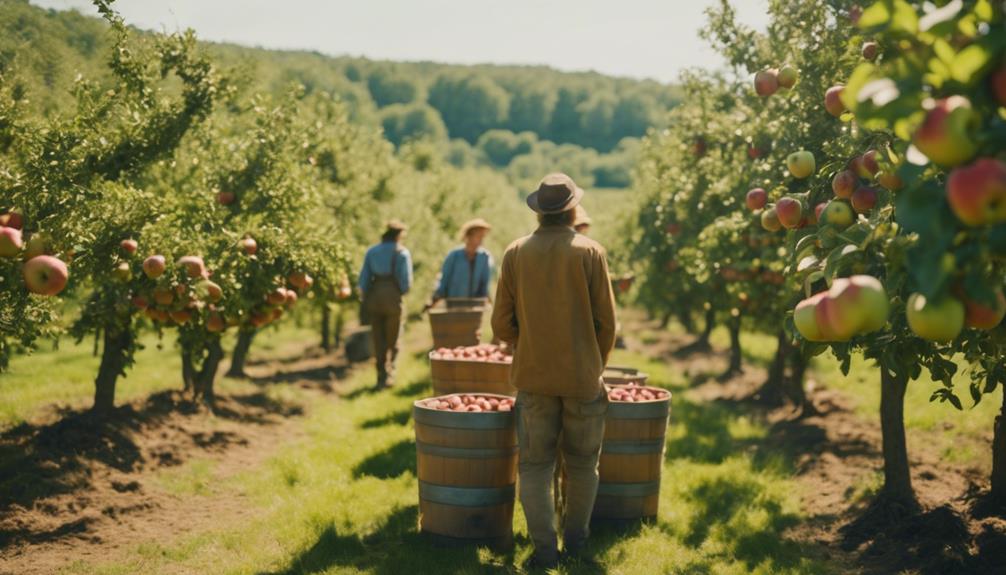Cider does not align with sustainable fashion values. It follows a fast fashion business model, encouraging overconsumption and contributing to environmental damage. Despite claims of using recycled materials, these often involve non-recyclable blends and create significant waste. The brand’s frequent releases promote a throwaway mentality, adding to overflowing landfills. Additionally, it lacks transparency regarding labor conditions and shows minimal dedication to fair wages or ethical practices. As a result, many consumers are now turning to alternatives that prioritize sustainability and fair treatment of workers. Exploring better options that truly embrace sustainability will reveal a variety of surprising choices available.
Key Takeaways
- Cider's fast fashion model promotes overproduction and waste, contributing significantly to environmental issues.
- Despite claims of using recycled materials, many items contain non-recyclable blends, undermining sustainability efforts.
- The brand is rated 'Very Poor' for transparency, labor conditions, and inadequate living wages for workers.
- Limited supply chain transparency raises concerns about worker exploitation and ethical practices.
What Is Cider?
Cider is a trendy direct-to-consumer womenswear brand that launched in 2020, designed specifically for Gen Z shoppers who crave the latest styles. As a fast fashion clothing brand, Cider thrives on rapid trend cycles and weekly drops, keeping pace with the micro trends that dominate social media. You'll find a diverse range of clothing options that cater to various moods and occasions, emphasizing inclusivity in its offerings.
With over 4.1 million followers on Instagram, Cider maintains a robust social media presence, engaging younger consumers with eye-catching visuals and promotional campaigns. However, the brand faces criticism for its role in promoting disposable fashion. Although Cider claims to use recycled materials, many argue that its sustainable initiatives don't meet expectations, raising questions about the authenticity of its practices.
As a Gen Z shopper, you might appreciate the affordability and trendiness of Cider's collections. However, it's crucial to reflect on the implications of fast fashion on the environment. Ultimately, you have the power to choose brands that align with your values and contribute positively to the fashion landscape.
Cider's Sustainability Practices

Cider's fast fashion model leads to significant overproduction and waste, making it difficult to ignore its environmental impact.
You might notice that claims about using recycled materials often mask the reality of non-recyclable blends, which undermines true sustainability.
These practices raise serious concerns about the brand's commitment to responsible fashion and its role in contributing to climate issues.
Overproduction and Waste Issues
The fast fashion model embraced by Cider drives overproduction and contributes to a growing waste crisis in the fashion industry. By launching weekly style drops, Cider encourages overconsumption, leading to an alarming amount of garments that end up in landfills. This disposable culture reflects a lack of commitment to sustainability, since the brand doesn't offer any programs for garment repair, recycling, or take-back initiatives.
Cider's approach creates significant waste issues, and the environmental burden associated with this fast fashion cycle is undeniable. While they may claim to use recycled materials, these assertions often turn out to be misleading, because such materials are typically blended with non-recyclable fabrics. This not only undermines genuine sustainability efforts but also perpetuates a reliance on low-cost production methods that prioritize profit over the planet.
Ultimately, without meaningful changes to address overproduction and waste issues, Cider remains entrenched in a model that exacerbates environmental damage. If you're concerned about sustainability, it's important to recognize how brands like Cider contribute to the fashion industry's waste crisis.
Misleading Material Claims
While claiming to use recycled materials, many of Cider's products often incorporate non-recyclable fabrics, rendering their sustainability efforts misleading. These misleading materials are part of a broader issue where Cider's sustainability claims don't hold up under scrutiny. Their weekly style drops fuel a cycle of overproduction and overconsumption, with no effective recycling programs or garment repair initiatives to address the resulting waste.
Moreover, Cider has faced criticism for failing to reduce hazardous chemicals in its production processes, continuing down an unsustainable fast fashion model. This lack of commitment to environmental standards raises serious concerns about their true impact on sustainability. Without any garment repair or recycling initiatives, it's likely that many of their products will end up in landfills, exacerbating environmental problems.
Despite their claims of promoting inclusivity, Cider's practices still fall short regarding labor rights and environmental policies. They've no clear strategies to enforce their Zero Tolerance Policy on these critical issues. So, when you consider Cider's actual practices, it's clear that their sustainability claims don't align with their actions.
Supply Chain Transparency

Many consumers find Cider's supply chain transparency concerning, as it reveals only a few tier 1 manufacturers without details on deeper supplier levels. This lack of transparency raises serious questions about ethical practices within the brand's operations.
Cider has a code of conduct that addresses human rights, safety, and environmental standards, but the effectiveness of enforcement for these standards remains questionable. Without a documented process for supplier remediation, accountability in addressing violations is limited.
Moreover, Cider has faced criticism for not supporting living wage policies, contributing to the ongoing issue of inadequate compensation for workers in its supply chain. The minimum wages in supplier regions fall considerably short of living wage standards, which further highlights the brand's disregard for ethical labor practices.
While Cider claims to promote inclusivity with an extended size collection, the reality is that options in larger sizes remain limited across their product offerings. This reflects a lack of thorough consideration for diverse body types, undermining their inclusivity claims.
Labor Conditions at Cider

Cider's labor conditions are concerning, as the brand is rated 'Very Poor' for transparency and accountability in its supply chain practices. You might be shocked to learn that the company doesn't provide evidence of living wages for workers, and minimum wages in supplier regions often fall short of living wage standards. While Cider conducts some auditing of its suppliers, the limited support for diversity and inclusion raises serious questions about worker rights and safety.
Moreover, Cider hasn't established clear policies for enforcing violations of its Zero Tolerance Policy regarding human rights and labor practices. This lack of action could leave workers vulnerable to exploitation. The brand's lack of transparency concerning supplier remediation processes only compounds these issues, making it difficult to trust their commitment to ethical practices.
In a world increasingly focused on corporate responsibility, Cider's shortcomings in labor conditions are glaring. If you're considering supporting a brand that values its workers, you might want to think twice about Cider's practices and the impact they've on human rights. Ultimately, accountability and ethical labor conditions should be non-negotiable for any brand claiming to be sustainable.
Environmental Impact of Cider

When you look at Cider's fast fashion model, it's clear how it fuels overproduction and overconsumption.
Their choice of materials, often blending recycled fabrics with non-recyclables, raises questions about true sustainability.
You can't ignore the environmental impact of these practices and the lack of initiatives to mitigate harm.
Fast Fashion Model
Operating on a fast fashion model, Cider contributes considerably to environmental degradation through its weekly style drops, which fuel overproduction and overconsumption of clothing. This approach leads to significant waste, as garments often end up in landfills, exacerbating the climate crisis.
Here's a visual representation of the key issues:
| Issue | Impact |
|---|---|
| Overproduction | Leads to excessive waste and environmental damage |
| Harmful Materials | Utilizes virgin polyester and spandex, which are unsustainable |
| Ethical Concerns | Relies on low-wage labor, promoting exploitation |
| Lack of Recycling Policies | Contributes to landfill overflow and hinders sustainability efforts |
Cider's environmental impact is rated 'Very Poor' due to its use of harmful materials and the absence of meaningful initiatives to mitigate hazardous chemicals. Without extensive recycling policies, the brand fails to address sustainability effectively. The reliance on low-wage labor raises ethical concerns, further underlining the exploitation inherent in the fast fashion model. Overall, Cider's practices highlight the urgent need for a shift towards more sustainable and responsible fashion choices.
Material Sourcing Practices
The material sourcing practices at Cider greatly contribute to its negative environmental impact, primarily through the use of harmful substances like virgin polyester and spandex. These materials aren't only detrimental to the planet but also reflect a fast fashion mentality that fosters overproduction and overconsumption.
While Cider touts some recycled materials, these claims can be misleading, as they often blend with non-recyclable fabrics, further undermining their sustainability credentials.
Additionally, Cider's lack of transparency in its supply chain raises serious concerns about environmental practices and the reliance on low-wage labor. Without clear sustainability commitments, it's difficult to trust that the materials sourced are produced ethically or sustainably.
The brand also fails to implement meaningful initiatives to reduce the use of hazardous chemicals in its production processes, exacerbating its environmental impact.
Ethical Considerations for Cider

Cider raises significant ethical concerns due to its lack of supply chain transparency and poor labor practices, which suggest a troubling disregard for workers' rights. The brand's commitment to sustainable fashion often falls short when you examine the reality behind its operations.
Here are three critical ethical considerations:
- Labor Conditions: Cider has been rated 'Very Poor' for labor conditions, with no evidence of living wages for its workers. This raises serious questions about the exploitation of labor within its supply chain.
- Recycled Materials: While Cider claims to use recycled materials, these often blend with non-recyclable fabrics, misleading consumers regarding their sustainability. This complicates any genuine efforts toward ethical practices.
- Inclusivity: Although Cider offers an extended size collection, options remain limited and lack community-benefiting initiatives. This indicates a superficial approach to inclusivity, falling short of meaningful engagement.
Ultimately, Cider's operations perpetuate fast fashion principles, contributing to overproduction and the disposable clothing culture without adequate measures for garment reclamation. If you're seeking a truly ethical brand, Cider may not align with your values.
Alternatives to Cider

Finding ethical alternatives to Cider can help you make more sustainable fashion choices while supporting brands that prioritize transparency and fair labor practices.
One great option is Pact, which focuses on Fair Trade basics made from certified organic cotton. Their commitment to eco-friendly production guarantees that you're not just buying clothes, but also supporting responsible sourcing.
If you're into upcycling, check out Frankie Collective. They specialize in transforming vintage clothing into trendy pieces while guaranteeing all workers receive a living wage. This approach not only reduces waste but also fosters ethical labor practices.
Brands like CHNGE and Afends stand out as ethical alternatives to fast fashion. They're rated Good for their sustainable materials and practices, giving you peace of mind in your purchasing decisions.
Iron Roots offers plastic-free athletic wear made from hemp, greatly reducing water usage and minimizing microplastics in waterways.
Consumer Choices and Values

When choosing fashion, your values play an essential role in shaping a more sustainable and ethical wardrobe.
With brands like Cider operating on a fast fashion model, it's vital to take into account how your consumer choices impact the environment and ethical standards. You can make a difference by focusing on the following:
- Transparency: Seek brands that openly share their supply chain practices. Cider's limited transparency raises ethical concerns, especially regarding fair labor practices.
- Material Choices: Prioritize clothing made from recycled materials that are genuinely recyclable. Cider's claims often mislead consumers since they blend recycled materials with non-recyclable fabrics.
- Environmental Impact: Explore alternatives that promote sustainability and minimize overproduction. Brands like Pact and Frankie Collective emphasize environmentally friendly practices and offer better solutions.
Frequently Asked Questions
Is Cider a Sustainable Clothing Store?
Cider isn't a sustainable clothing store. It promotes fast fashion, relies on harmful materials, and has poor labor conditions. You might want to explore brands that genuinely prioritize sustainability and ethical practices for your wardrobe choices.
Is Cider Not Sustainable?
Yes, Cider isn't sustainable. Its fast fashion model promotes overproduction, uses misleading recycled materials, and fails to guarantee ethical labor practices. You'll find significant environmental and social concerns in their operations, undermining any claims of sustainability.
Is Cider a Trustworthy Clothing Brand?
Cider's got a reputation for being as trustworthy as a fox in a henhouse. You'll find limited transparency, poor labor conditions, and harmful materials, so it's best to think twice before buying from them.
Is Cider the Same as Shein?
Cider and Shein operate similarly, both embracing fast fashion with rapid trend cycles and low prices. You'll find they share critiques about labor practices and sustainability, making them hard to differentiate in ethical considerations.
What Makes Cider More Sustainable Than Cotton in Fashion?
Cotton on sustainable fashion truth: Cider is more sustainable than cotton in fashion due to its lower water and pesticide usage. Cider production also creates less waste and requires less energy, making it a more eco-friendly choice for fashion brands looking to reduce their environmental impact.
Conclusion
In the world of fashion, Cider stands at a crossroads. While it champions trendy designs and affordability, its sustainability practices raise eyebrows.
You might love the vibrant styles, but can you ignore the environmental and ethical concerns?
Choosing Cider means balancing your desire for chic outfits with the responsibility of supporting sustainable practices.
So, as you decide what to wear, think about what you're truly supporting—fashion shouldn't just look good; it should feel good too.









